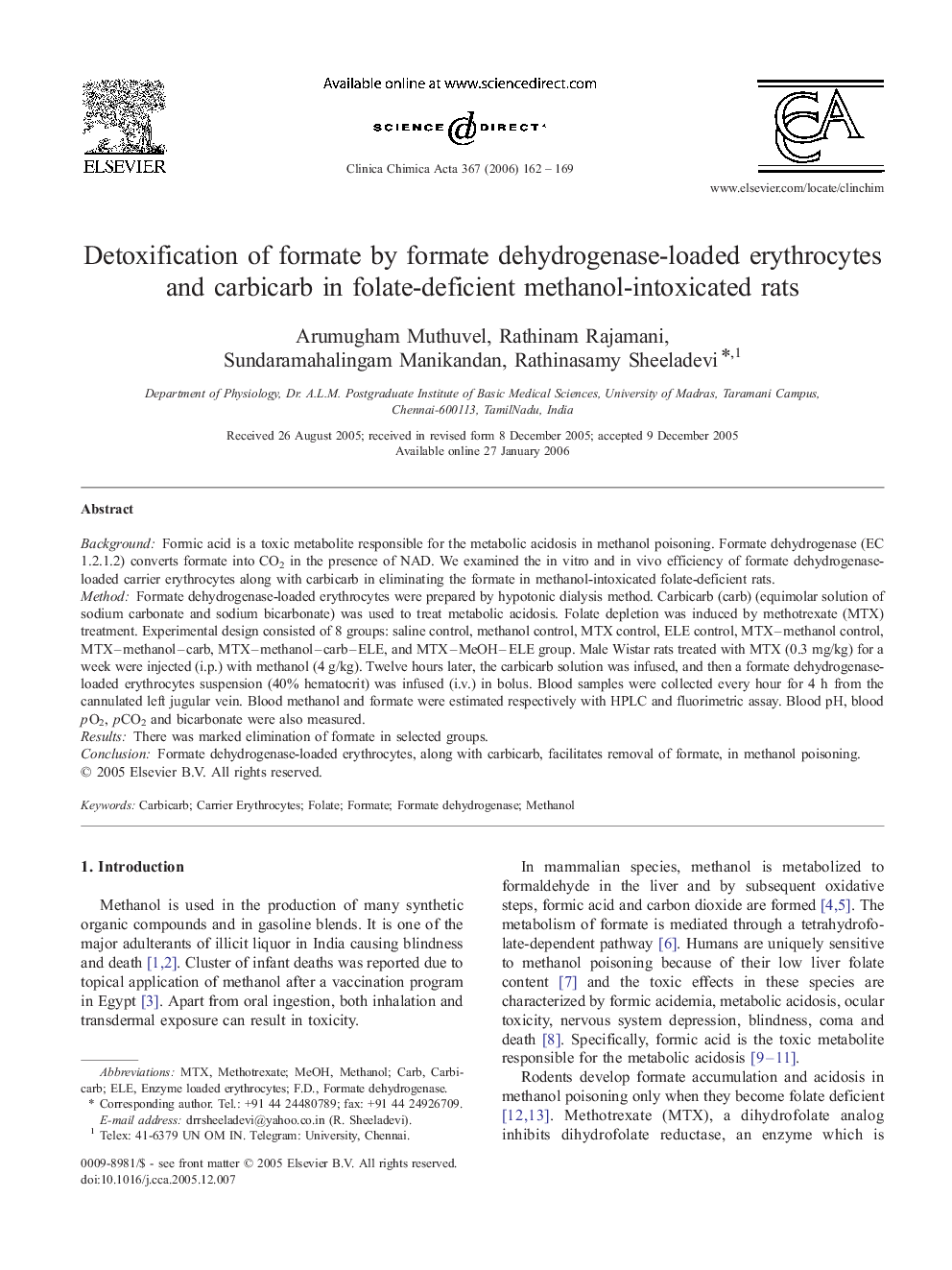| Article ID | Journal | Published Year | Pages | File Type |
|---|---|---|---|---|
| 1968096 | Clinica Chimica Acta | 2006 | 8 Pages |
BackgroundFormic acid is a toxic metabolite responsible for the metabolic acidosis in methanol poisoning. Formate dehydrogenase (EC 1.2.1.2) converts formate into CO2 in the presence of NAD. We examined the in vitro and in vivo efficiency of formate dehydrogenase-loaded carrier erythrocytes along with carbicarb in eliminating the formate in methanol-intoxicated folate-deficient rats.MethodFormate dehydrogenase-loaded erythrocytes were prepared by hypotonic dialysis method. Carbicarb (carb) (equimolar solution of sodium carbonate and sodium bicarbonate) was used to treat metabolic acidosis. Folate depletion was induced by methotrexate (MTX) treatment. Experimental design consisted of 8 groups: saline control, methanol control, MTX control, ELE control, MTX–methanol control, MTX–methanol–carb, MTX–methanol–carb–ELE, and MTX–MeOH–ELE group. Male Wistar rats treated with MTX (0.3 mg/kg) for a week were injected (i.p.) with methanol (4 g/kg). Twelve hours later, the carbicarb solution was infused, and then a formate dehydrogenase-loaded erythrocytes suspension (40% hematocrit) was infused (i.v.) in bolus. Blood samples were collected every hour for 4 h from the cannulated left jugular vein. Blood methanol and formate were estimated respectively with HPLC and fluorimetric assay. Blood pH, blood pO2, pCO2 and bicarbonate were also measured.ResultsThere was marked elimination of formate in selected groups.ConclusionFormate dehydrogenase-loaded erythrocytes, along with carbicarb, facilitates removal of formate, in methanol poisoning.
